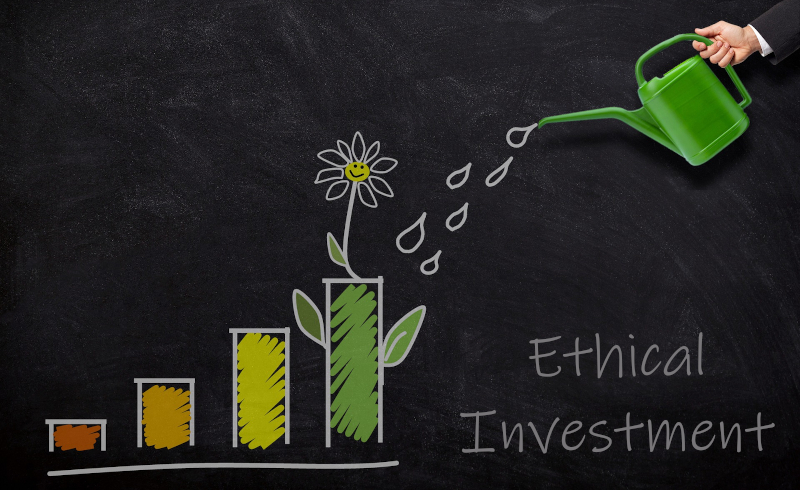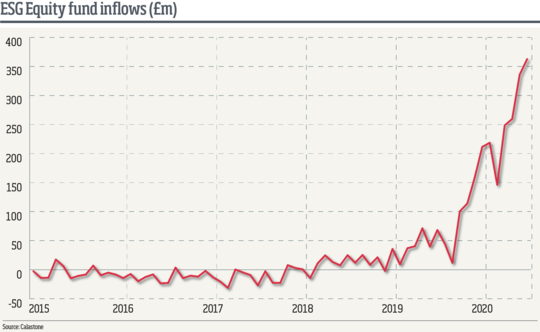
Inflows
Many people will now be familiar with Ethical/Environment, Social & Governance (ESG) investing as this is becoming an ever more prominent area, but just how much has this area grown recently?
2019 saw record inflows for ESG funds. This was the case both in the UK and in the US. Previously the investment options in this area were far more limited, usually with a typical “Ethical” fund being offered only. With many more offerings in the market, investors can now invest in a far greater range of funds, which can align more closely with their own views and morals. This has broadened the appeal of ESG funds. An added benefit of this increased competition is that it has driven costs down in funds to a far more competitive level when compared with non-ESG funds.
Indeed, this trend has continued, with July seeing record monthly inflows into ESG funds in the UK. The graph below highlights just how the ESG Equity fund inflows have exploded showing that from 2019 onwards inflows really took hold.

Performance
One misconception is that investing in an ESG fund means giving up on returns. Academic research is divided on the issue, with some arguing that a company demonstrating good ESG behaviours will outperform those that do not, as better governance is often correlated with companies who are deemed to be higher quality. Others argue that the additional costs involved in meeting ESG compliance will outweigh the benefit and be a hindrance to the performance of the company.
One “benefit” has been the lack of Oil holdings in ESG funds. This has been an area of poor performance. In addition, Technology holdings often feature quite prominently in ESG funds, which has been a sector that has outperformed lately.
If we look at the data, this backs up the thesis of ESG funds outperforming. Data published by Morningstar has examined the long-term performance of a sample of 745 European based sustainable funds. The results showed that most strategies have done better than non-ESG funds over 1, 3, 5 and 10 years. As ESG funds are still relatively new, performance data only goes back 10 years with a big enough sample range, however the findings do seem to debunk the myth that investing in ESG funds carries a performance cost.
Looking Ahead
The growth in ESG funds is projected to continue, with a report from Deloitte estimating that ESG mandated assets in the US could grow at 3x the rate of non-ESG mandated assets up to 2025.
In addition, from 10th March 2021 the EU directive on Sustainability-Related Disclosures will take effect. This aims to enhance transparency regarding the integration of environmental, social and governance matters. This will apply to the UK also, despite the withdrawal from the EU. This will give investors a clear benchmark for comparison between funds.
Despite the outperformance of ESG funds over recent times, there is no guarantee this will continue. Investors should move into ESG funds not based on performance, but to ensure their investments are aligned with their own views. As we often say, past performance is no indicator of future performance.